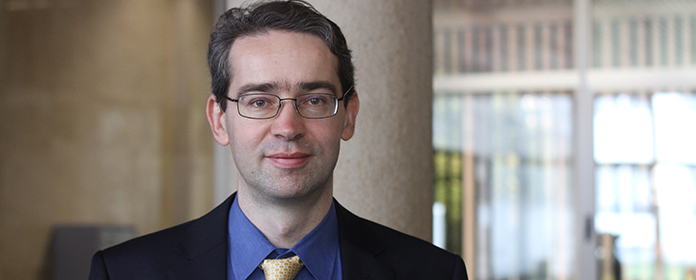Is it possible to reach agreements in politics?
"If we think that any concession is an ideological defeat, it will be impossible to reach a agreement", says David Thunder, researcher of the project 'Religion and Civil Society' of the Institute for Culture and Society

'agreement', 'coalition', 'dialogue', 'civil service examination'... These words have been resonating in Spanish politics since December 2015. It seems impossible for the parties to reach a agreement even if the political programs share objectives oriented to the common good: improving the Economics, reducing unemployment, eradicating corruption...
What stands in the way of dialogue between politicians? According to David Thunder, researcher of project Religion and Civil Society of Institute for Culture and Societyis partisanship taken to the extreme.
"In Spain there is a tribalism in politics, that is to see the adversaries as incapable of perceiving the truth: they are blind and only you and your tribe can enlighten the people and bring them truth and justice," explains Thunder. He affirms that this tendency can only be overcome by having an open mind, since even from the opponent you can learn.
From agreement with the researcher, in Spain there is no culture of dialogue. Until the December 2015 elections, the government parties had no real civil service examination as they governed through majorities in Parliament and "did not feel obliged to dialogue with their adversaries," he says. Thus, a dual mentality has been fostered: either one suffers defeat and is excluded from power or one's own ideology triumphs. "If we think that any concession is an ideological defeat, it will be impossible to reach a agreement", regrets the expert. Imperfect agreements: the lesser evilFor Thunder, yes, it is possible to reach a agreement in politics even if the parties do not completely agree. He speaks of reaching a middle ground, an imperfect agreement . "The alternative in politics is civil war, so one may be willing to accept agreements that are not ideal," he adds. He maintains that a non-ideal result is not always a defeat of principles, for example, justice is not always perfectly implemented.
For the expert, the virtue of moderation is necessary to accept imperfect agreements. "We are not a perfect society and we never will be," he argues, "we have to accept imperfection as a sine quae non condition for participation manager in politics," adds researcher.
When the result does not conform perfectly to any party, it is seen as a lesser evil. It is accepted only to move forward, to avoid a worse status . Although Thunder warns that allowing lesser evils to "dominate" in order to avoid a greater evil has its consequences: "There will be no social progress because there are no coherent principles to motivate policies.
According to the expert, there are two types of disagreement. First, there are the technical disagreements "on what is the most effective technique to achieve an agreed goal, for example, to increase GDP". For Thunder, it is possible to reach a middle ground.
The other disagreement is over basic principles, for example the powers of government. "This subject of disagreement can be lessened but not eliminated without a philosophical conversion, it is a moral disagreement," he says. "It's not manager to be inflexible."Thunder warns that it is not manager to be inflexible and, above all, criticizes those who hold to a position motivated by utopia: "Wanting to achieve perfection by imposing oneself". However, he admits that there are situations in which it is possible to maintain a firm opinion: for the greater good. One example is fighting for racial equality.
The expert applauds the demands of Martin Luther King Jr. He knew how to remain inflexible but to act with moderation. First, he exhausted political and administrative avenues and, when they did not work, he organized peaceful protests.
How does one know when to give in and when not to give in? According to researcher, one needs to make a sound judgment driven by the virtues of moderation and humility. "If you don't discipline the ego, politics collapses into a circus," he warns. training to advance the common good"If you can't find a way to enter politics without losing your moral principles, you have to find another way to advance the common good," says Thunder. From work or from civic associations, one can contribute to the construction of a better society.
Many times, politics and politicians are disowned, claiming that they are corrupt, but without knowing what can be done to solve it. The researcher affirms that it is possible to get out of this status thanks to the citizen partnership as it happened in Poland during the communism, when the cultural groups tried to promote the idea of common good through theatrical plays.
"For me, the civic training is fundamental and can help society move forward even if politics or parties are corrupt," he concludes.